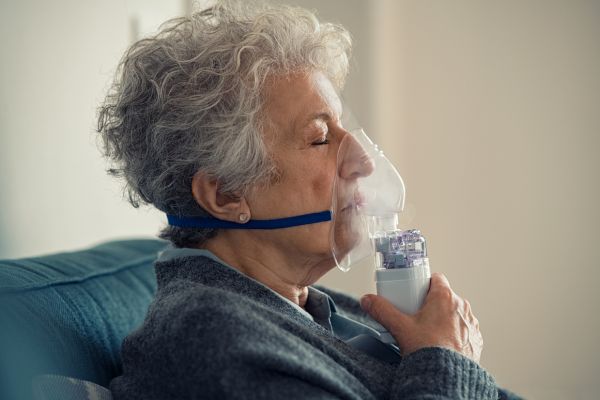The UK often experiences a surge in seasonal respiratory illnesses during winter. Understanding these trends is crucial for both the public and healthcare professionals. This guide examines typical seasonal influenza patterns and other key respiratory viruses, drawing on recent data to offer clarity on the challenges and best practices for prevention.
The past winter (November 2024 to March 2025) proved particularly demanding for NHS services. A “quad-demic” of viruses, including COVID-19, flu, RSV, and norovirus, put significant pressure on resources. These viruses led to around 600,000 hospital bed occupancies. So, this guide aims to provide context and strategies to help everyone navigate future winter pressures.
This report gave a comprehensive overview of the surveillance systems used in England. These systems track the spread of COVID-19, influenza, and other seasonal respiratory viruses. We will focus on data collected up to week 13 of 2025, specifically from March 24th to March 30th.
COVID-19, caused by the SARS-CoV-2 virus, has presented an ongoing global health challenge. Influenza, another viral infection, also causes seasonal epidemics and poses a significant threat to public health. This report includes data on other respiratory viruses that show seasonal patterns.

Influenza Trends
According to Gov.UK data, the average weekly positivity rate for influenza showed a slight decrease in week 13. Specifically, the rate dropped to 7.8%, down from 8.3% in week 12. However, it’s important to note that the 25 to 44-year-old age group continued to have the highest positivity rates. Within this group, the average weekly positivity rate was 17.7%, a slight decrease from the previous week’s 18.4%. This data suggests that while overall influenza activity may be decreasing, young to middle-aged adults are still disproportionately affected. Therefore, they need continued attention and preventive measures.
COVID-19 Activity
The latest data show that influenza activity continues to decline across various indicators. Currently, influenza activity levels are low. This trend is evident in the decrease in emergency department visits for influenza-like illness (ILI). In addition, laboratory-confirmed influenza cases and acute respiratory infection (ARI) incidents also decreased in week 13 compared to the previous week. Throughout this influenza season, the predominant subtype detected has been influenza A (H1N1). However, recent data indicate a rise in the proportion of influenza B cases in 2025. Despite this increase, the overall number of influenza B cases remains lower than influenza A (H1N1). Some influenza A (H3N2) detections have been reported, showing that this strain is still circulating, although less prevalent.
Preventing Respiratory Viruses
Annual flu vaccination is the most effective way to reduce the risk of seasonal flu and its potential complications. But other preventative measures are also crucial. These include avoiding close contact with sick individuals, covering your mouth and nose when you cough, and washing your hands frequently. These practices help to prevent the spread of germs and respiratory illnesses. Furthermore, maintaining clean air and practicing good hygiene, such as regularly cleaning frequently touched surfaces, are also helpful.
Detailed Prevention Guidelines
Here are some detailed guidelines to help prevent these illnesses:
- Maintain distance from others: Keep a safe distance from people who are sick. If you are feeling unwell, stay home to avoid infecting others. You can resume normal activities when your symptoms have improved. You should be fever-free for at least 24 hours without using fever-reducing medication.
- Practice good respiratory hygiene: Always cover your mouth and nose with a tissue when coughing or sneezing. You could also wear a face covering for added protection. Dispose of used tissues properly. Then, wash or sanitise your hands.
- Wash your hands frequently: Wash your hands with soap and water for at least 20 seconds. If soap and water are not available, use an alcohol-based hand sanitiser to kill germs.
- Avoid touching your face: Germs can easily spread when you touch your eyes, nose, or mouth with contaminated hands. So, be mindful of this habit and try to avoid it.
- Improve air quality: Ensure good ventilation by bringing in fresh air. You can also use air purifiers or gather outdoors to reduce the risk of exposure.
- Maintain a healthy lifestyle: Regularly clean and disinfect frequently touched surfaces. Also, get enough sleep, exercise regularly, manage stress, stay hydrated, and eat a balanced diet.
Total Assist’s Role During Virus Peaks
Healthcare staffing agencies, like Total Assist, play a vital role in supporting the NHS during seasonal virus peaks:
- Flexibility: Total Assist quickly provides temporary staff to meet fluctuating demands in healthcare settings.
- Rapid Support: We can rapidly deploy staff to cover unexpected staff shortages or absences, ensuring continuity of care.
- Specialised Skills: Total Assist can supply healthcare professionals with the specialised skills needed to manage specific situations, such as seasonal virus outbreaks.
- Reduced Strain on Permanent Staff: By providing temporary support, we help reduce the workload and burnout among permanent healthcare staff.
The UK experienced a “quad-demic” during the winter of 2024-2025. During that time, healthcare staffing agencies, including Total Assist, provided additional staff to the NHS. This support helped manage the increased demand for healthcare services.
At Total Assist, we are proud to partner with healthcare providers across the UK. We supply dedicated and skilled professionals who are ready to meet the evolving demands of patient care. Whether it’s providing crucial support during peak periods of seasonal viruses or ensuring consistent staffing levels year-round, Total Assist is committed to helping the NHS deliver exceptional care.

